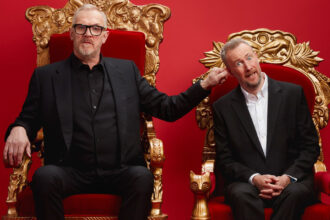P.J. Hogan Video Interview On Directing ‘Mental,’ Toni Collette
P.J Hogan, the writer and director of Mental, based the movie on the real events of his childhood following the nervous breakdown of his mother. Reliving his childhood days through the film, Hogan takes his audience on the anarchic rollercoaster ride that is mental illness. “Look, I am in the trenches with mental illness,” he told Uinterview in an exclusive interview. “My sister is schizophrenic, my brother is bipolar, and I am the father of two autistic children, so I live with it every day.”












Leave a comment